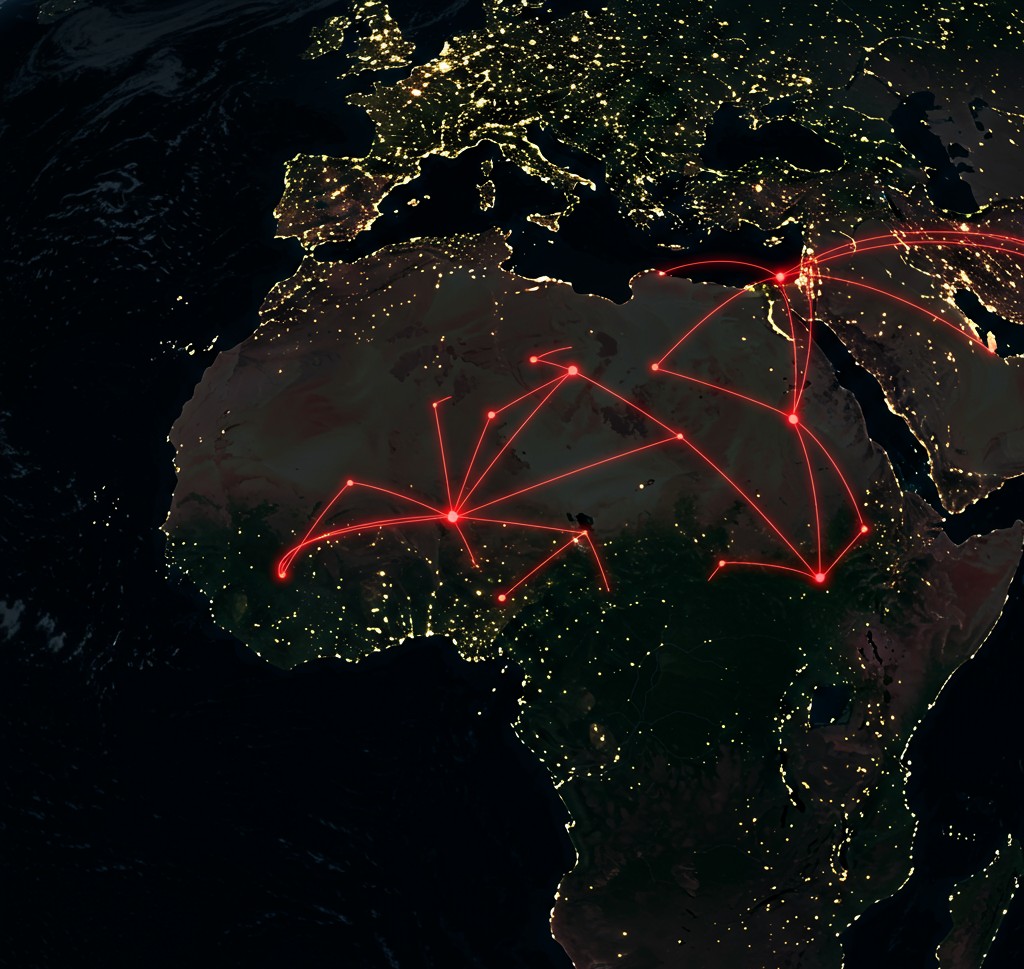
12 Dec THE SAHEL: A POLYGON OF CRISIS AT THE DOOR OF EUROPE
The Sahel: A polygon of crises at the door of Europe is an in-depth seminar exploring one of the world’s most complex and volatile regions.
Drawing on Ambassador Ángel Losada’s extensive diplomatic experience, the course offers a comprehensive understanding of the Sahel’s political, security, environmental, and developmental challenges.
The seminar begins by establishing the historical and geographical context of the Sahel and the peace process in Mali, before analysing the root causes and consequences of instability, including violent extremism, governance, and climate-driven fragility. It also examines the role of regional and other international actors—such as the European Union, United Nations, African Union and ECOWAS and how new actors like Russia and China are taking their place.
A central aim of the course is to enable students to assess the strategic importance of the Sahel in global and mainly European geopolitics and explore the complexities of designing sustainable policies in fragile contexts. Special attention will be given to the European strategies and their failures. Students will be encouraged to critically evaluate international approaches, develop informed perspectives on security and governance, and consider innovative policy responses.
Through a mix of lectures, case studies, and practitioner insight, the seminar equips students with the analytical tools to understand the multi-dimensional challenges of the Sahel and prepares them to engage with the region’s future as informed global citizens and future policy leaders
The Sahel: A polygon of crises at the door of Europe is an in-depth seminar exploring one of the world’s most complex and volatile regions.
Drawing on Ambassador Ángel Losada’s extensive diplomatic experience, the course offers a comprehensive understanding of the Sahel’s political, security, environmental, and developmental challenges.
The seminar begins by establishing the historical and geographical context of the Sahel and the peace process in Mali, before analysing the root causes and consequences of instability, including violent extremism, governance, and climate-driven fragility. It also examines the role of regional and other international actors—such as the European Union, United Nations, African Union and ECOWAS and how new actors like Russia and China are taking their place.
A central aim of the course is to enable students to assess the strategic importance of the Sahel in global and mainly European geopolitics and explore the complexities of designing sustainable policies in fragile contexts. Special attention will be given to the European strategies and their failures. Students will be encouraged to critically evaluate international approaches, develop informed perspectives on security and governance, and consider innovative policy responses.
Through a mix of lectures, case studies, and practitioner insight, the seminar equips students with the analytical tools to understand the multi-dimensional challenges of the Sahel and prepares them to engage with the region’s future as informed global citizens and future policy leaders
The Sahel: A polygon of crises at the door of Europe is an in-depth seminar exploring one of the world’s most complex and volatile regions.
Drawing on Ambassador Ángel Losada’s extensive diplomatic experience, the course offers a comprehensive understanding of the Sahel’s political, security, environmental, and developmental challenges.
The seminar begins by establishing the historical and geographical context of the Sahel and the peace process in Mali, before analysing the root causes and consequences of instability, including violent extremism, governance, and climate-driven fragility. It also examines the role of regional and other international actors—such as the European Union, United Nations, African Union and ECOWAS and how new actors like Russia and China are taking their place.
A central aim of the course is to enable students to assess the strategic importance of the Sahel in global and mainly European geopolitics and explore the complexities of designing sustainable policies in fragile contexts. Special attention will be given to the European strategies and their failures. Students will be encouraged to critically evaluate international approaches, develop informed perspectives on security and governance, and consider innovative policy responses.
Through a mix of lectures, case studies, and practitioner insight, the seminar equips students with the analytical tools to understand the multi-dimensional challenges of the Sahel and prepares them to engage with the region’s future as informed global citizens and future policy leaders
The Sahel: A polygon of crises at the door of Europe is an in-depth seminar exploring one of the world’s most complex and volatile regions.
Drawing on Ambassador Ángel Losada’s extensive diplomatic experience, the course offers a comprehensive understanding of the Sahel’s political, security, environmental, and developmental challenges.
The seminar begins by establishing the historical and geographical context of the Sahel and the peace process in Mali, before analysing the root causes and consequences of instability, including violent extremism, governance, and climate-driven fragility. It also examines the role of regional and other international actors—such as the European Union, United Nations, African Union and ECOWAS and how new actors like Russia and China are taking their place.
A central aim of the course is to enable students to assess the strategic importance of the Sahel in global and mainly European geopolitics and explore the complexities of designing sustainable policies in fragile contexts. Special attention will be given to the European strategies and their failures. Students will be encouraged to critically evaluate international approaches, develop informed perspectives on security and governance, and consider innovative policy responses.
Through a mix of lectures, case studies, and practitioner insight, the seminar equips students with the analytical tools to understand the multi-dimensional challenges of the Sahel and prepares them to engage with the region’s future as informed global citizens and future policy leaders
The Sahel: A polygon of crises at the door of Europe is an in-depth seminar exploring one of the world’s most complex and volatile regions.
Drawing on Ambassador Ángel Losada’s extensive diplomatic experience, the course offers a comprehensive understanding of the Sahel’s political, security, environmental, and developmental challenges.
The seminar begins by establishing the historical and geographical context of the Sahel and the peace process in Mali, before analysing the root causes and consequences of instability, including violent extremism, governance, and climate-driven fragility. It also examines the role of regional and other international actors—such as the European Union, United Nations, African Union and ECOWAS and how new actors like Russia and China are taking their place.
A central aim of the course is to enable students to assess the strategic importance of the Sahel in global and mainly European geopolitics and explore the complexities of designing sustainable policies in fragile contexts. Special attention will be given to the European strategies and their failures. Students will be encouraged to critically evaluate international approaches, develop informed perspectives on security and governance, and consider innovative policy responses.
Through a mix of lectures, case studies, and practitioner insight, the seminar equips students with the analytical tools to understand the multi-dimensional challenges of the Sahel and prepares them to engage with the region’s future as informed global citizens and future policy leaders
ANGEL LOSADA
Losada Fernández, Ángel. Former Ambassador to Iran and EU Special Representative for the Sahel. Ambassador Losada Fernández brings extensive diplomatic experience, particularly in critical regions such as Iran, the Sahel, and Afghanistan. In addition to being a Spanish diplomat, he has served as an international official for the United Nations, NATO, and the European Union. As the former EU Special Representative for the Sahel and EU mediator in the Mali peace process, he has played a key role in shaping and implementing European policies in this strategic region. His deep understanding of security dynamics in Africa and the Middle East makes him a leading voice on diplomacy, conflict prevention, and international cooperation in areas of high geopolitical complexity. He brings a wealth of global experience to his engagements with students and future leaders at IE University.

Skills
1. By the end of the seminar, students will be able to identify and explain at least five key geopolitical factors that contribute to the Sahel’s regional instability and its importance for Europe.
2. Students will critically analyse three major security challenges in the Sahel and evaluate the effectiveness of international interventions using real-world case studies, in particular the peace process in Mali.
3. Students will be able to describe the role of different at least four international actors (e.g., EU, UN, AU, G5 Sahel, The Alliance of Sahel States, ECOWAS) and countries (e.g., USA, France, Russia, China) and assess their impact on regional development and peacebuilding efforts.
4. By the end of the seminar, students will produce a policy brief or strategic memo proposing two actionable recommendations to address a core issue affecting the Sahel.
5. Students will demonstrate the ability to connect climate, governance, and security dynamics by mapping at least three interlinked root causes of fragility in the Sahel.
Schedule
Which dates?
19-jan
26-jan
02-feb
09-feb
16-feb
23-feb
What day?
MONDAYS
What time?
10.30-12.00
